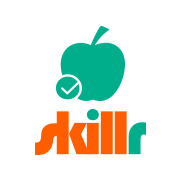Description

Alemira Proctor

Tinybop
Comprehensive Overview: Alemira Proctor vs Tinybop
Alemira Proctor and Tinybop are distinct products that serve different markets and functions, with specific features tailored to their audiences. Here's an overview of each:
Alemira Proctor
a) Primary Functions and Target Markets
- Primary Functions: Alemira Proctor is an online proctoring solution that enables educational institutions and organizations to conduct secure online examinations. Its core functions include identity verification, test monitoring, recording test sessions, and providing analytical reports to prevent cheating.
- Target Markets: Its primary markets are educational institutions (universities, colleges, and schools) and professional certification organizations that require secure, scalable, and reliable online examination systems.
b) Market Share and User Base
- Market Share: Alemira Proctor competes in the online examination and proctoring technology market. Exact market share data is generally not explicitly disclosed; however, it's part of a growing industry with increasing adoption due to the rise in remote learning and certifications.
- User Base: The user base primarily includes academic administrators, educators, and certification bodies who seek to transition from traditional exam settings to online environments.
c) Key Differentiating Factors
- Security and Reliability: Alemira Proctor's focus on security, including real-time monitoring and AI-based analytics, ensures a high level of exam integrity.
- Integration Capabilities: The product can integrate with various Learning Management Systems (LMS), providing a seamless experience for institutions already using digital education tools.
- Scalability: Alemira Proctor is designed to manage large volumes of simultaneous users, making it suitable for massive open online courses (MOOCs) and large-scale testing.
Tinybop
a) Primary Functions and Target Markets
- Primary Functions: Tinybop creates educational apps designed to ignite curiosity and creativity in children. Their apps cover a range of subjects, including science, mathematics, and social studies, and often feature interactive play to help children learn complex concepts.
- Target Markets: The target market for Tinybop is primarily young children (ages 4-12) and their parents, though educators may use the apps as a classroom resource.
b) Market Share and User Base
- Market Share: Tinybop operates in the digital education app market for children. This sector has seen wide adoption as mobile devices become more prevalent in children's educational activities.
- User Base: Tinybop’s user base includes parents and educators looking for engaging, educational apps for children, contributing to a broader market of educational technology for early learners.
c) Key Differentiating Factors
- Interactive Learning: Tinybop emphasizes interactive, experiential learning through well-designed, user-friendly apps that encourage exploration and hands-on activity.
- Content Variety: With a variety of subjects covered, Tinybop’s app portfolio caters to different interests and educational needs.
- Visual and Audio Elements: The apps are known for their high-quality visuals and sound design, making them appealing and effective educational tools for engaging young minds.
Comparative Analysis
Comparing Alemira Proctor and Tinybop is somewhat akin to comparing apples and oranges, as they serve vastly different purposes and audiences. Alemira Proctor is designed for secure online assessments in professional and educational contexts, while Tinybop focuses on interactive learning experiences for young children. As such, they do not directly compete, and their market shares reflect their positions within completely separate niches of the educational technology landscape.
Overall, the key differentiators for Alemira Proctor are security, scalability, and integration capabilities, which are crucial in the context of online examinations. In contrast, Tinybop’s strengths lie in its interactive design, engaging content, and user-focused learning experiences for children.
Contact Info

Year founded :
Not Available
Not Available
Not Available
Not Available
Not Available

Year founded :
Not Available
Not Available
Not Available
Not Available
Not Available
Feature Similarity Breakdown: Alemira Proctor, Tinybop
As of my last update, I don't have specific product details for "Alemira Proctor" and "Tinybop," but I can offer a general framework for comparing similar educational or proctoring platforms. If these hypothetical products exist, here's how you might analyze them:
a) Core Features in Common
-
User Management:
- Both platforms likely include user management features that allow administrators to create, edit, and delete user accounts.
-
Assessment Tools:
- Features for creating, managing, and delivering assessments or interactive content.
-
Analytics and Reporting:
- Both platforms might offer dashboards or reports that provide insights into user performance and engagement.
-
Security and Compliance:
- Includes data encryption, compliance with educational data standards, and secure login processes.
-
Integration Capabilities:
- Integration with common Learning Management Systems (LMS) or third-party tools for seamless user experience.
-
Cross-platform Accessibility:
- Availability on multiple devices including desktops, tablets, and smartphones.
b) User Interface Comparison
-
Design Aesthetics:
- Alemira Proctor might focus on a professional, streamlined interface suited for higher education and corporate training, whereas Tinybop could have a more playful and vibrant interface tailored to engage younger users.
-
Ease of Navigation:
- Alemira Proctor may prioritize simplicity and efficiency for test proctoring, while Tinybop might focus on exploratory navigation to encourage discovery among children.
-
Customization:
- The degree to which users can customize their experience might differ, with proctoring systems possibly offering less personalization compared to interactive educational apps that allow customized learning paths.
c) Unique Features
-
Alemira Proctor (Hypothetical):
- Advanced Proctoring Tools: AI-driven behavior monitoring for exams, including facial recognition and anomaly detection.
- Institutional Integrations: Unique integrations with other university or corporate systems not typically found in general educational tools.
- Offline Capabilities: Features to support exam-taking in low-connectivity environments.
-
Tinybop (Hypothetical):
- Interactive Simulations: Unique interactive modules designed to teach science concepts through exploration and play.
- Augmented Reality Experiences: Use of AR for immersive educational experiences that blend physical and digital learning.
- Community and Sharing Features: Allows users to share creations and discoveries with a community of learners.
Without specific details, this is a hypothetical analysis based on typical features seen in educational and proctoring tools. For actual comparisons, detailed product research or user reviews would be necessary.
Features

Not Available

Not Available
Best Fit Use Cases: Alemira Proctor, Tinybop
Alemira Proctor and Tinybop cater to different needs and audiences, each offering unique solutions for various types of businesses and projects. Here’s a breakdown of their best fit use cases:
Alemira Proctor
a) Types of businesses or projects:
- Educational Institutions: Alemira Proctor is particularly well-suited for schools, colleges, and universities that require a robust and secure online proctoring solution for conducting exams. Its ability to monitor and ensure the integrity of assessments makes it ideal for academic settings.
- Certification Bodies: Professional certification organizations can use Alemira Proctor to administer exams remotely, ensuring that candidates complete assessments under secure and compliant conditions.
- Corporate Training and Development: Companies offering training programs that include assessments or certification tests can leverage Alemira Proctor to maintain exam integrity while offering the flexibility of remote assessments.
d) Industry verticals and company sizes:
- Alemira Proctor is versatile enough to cater to the education sector, corporate sectors, and professional certification bodies. It is scalable from small educational institutions to large universities, and from small businesses to large multinational corporations with extensive training programs.
Tinybop
b) Scenarios where Tinybop is preferred:
- Educational Content for Young Learners: Tinybop is best known for its educational apps that are designed to engage children in learning about science, technology, and other subjects in an interactive way. It is ideal for use in primary schools or for parents looking to supplement their children's education with engaging digital tools.
- Interactive Learning Experiences: Use cases where there is a need for highly interactive and visually appealing educational content would benefit from Tinybop's offerings. This includes informal education settings like after-school programs and libraries.
d) Industry verticals and company sizes:
- Tinybop primarily caters to the education industry, particularly targeting K-12 education. It is more focused on individual and small classroom settings rather than large institutional deployments. Tinybop's products are aligned with the needs of educators, parents, and small educational content providers who want to offer engaging and educational experiences to children.
In summary, Alemira Proctor is best suited for scenarios requiring secure, scalable online proctoring solutions, particularly in education and professional certification industries, while Tinybop excels in creating interactive educational experiences for young learners, making it ideal for K-12 education environments.
Pricing

Pricing Not Available

Pricing Not Available
Metrics History
Metrics History
Comparing undefined across companies
Conclusion & Final Verdict: Alemira Proctor vs Tinybop
To provide a comprehensive conclusion and final verdict on Alemira Proctor and Tinybop, we will evaluate the overall value each product offers, weigh their respective pros and cons, and provide specific recommendations for potential users.
Conclusion and Final Verdict
a) Best Overall Value:
Considering all factors, the best overall value depends largely on the specific needs and goals of the user. If an educational institution or organization requires a robust proctoring solution with sophisticated features for online examination, Alemira Proctor is the likely choice. Conversely, for educational content aimed at young children that focuses on interactive learning experiences, Tinybop stands out as a better value.
b) Pros and Cons of Each Product:
Alemira Proctor:
Pros:
- Provides reliable and secure online proctoring solutions suitable for academic institutions and organizations conducting exams.
- Offers advanced monitoring features such as AI-driven analytics, behavior tracking, and live proctoring.
- Ensures high levels of integrity and security for remote assessments.
Cons:
- May have a steep learning curve for users unfamiliar with proctoring software.
- Potential privacy concerns for students due to surveillance features.
- Requires strong internet connectivity and compatible devices, which may not be accessible to all users.
Tinybop:
Pros:
- Engaging and educational content focused on STEM, nature, and other fine-tuned subjects for younger audiences.
- Interactive and exploratory apps that foster creativity and learning through play.
- Visually appealing and child-friendly design that attracts and retains children's attention.
Cons:
- Primarily designed for children, which might not cater to older audiences or academic institutions looking for assessment tools.
- Limited subject range beyond what is covered in their app offerings.
- Requires parental controls and guidance to maximize educational benefits.
c) Specific Recommendations:
For users trying to decide between Alemira Proctor and Tinybop, consider the following recommendations:
-
Educational Institutions: If your institution requires a secure and efficient system for administering and proctoring exams, Alemira Proctor is an ideal choice. It provides the essential tools needed for preventing cheating and ensuring the integrity of online assessments.
-
Parents or Educators with Young Children: If you're aiming to foster learning and curiosity in children through interactive digital platforms, Tinybop is more suitable. Its range of apps is designed to provide stimulating experiences that can enhance learning at an early age.
-
Combination Needs: In scenarios where both proctoring and child-focused educational content are relevant (e.g., a digital learning center for various age groups), consider integrating both systems—employ Alemira Proctor for examination purposes and Tinybop's apps for interactive educational content aimed at younger students.
In conclusion, the decision between Alemira Proctor and Tinybop should be based on the specific needs and age group of the target audience. Both products offer distinct advantages, tailored to different segments of the educational market.
Add to compare
Add similar companies



